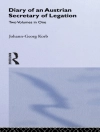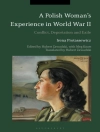In ‘A Description of Millenium Hall, ‘ Sarah Scott presents an intricate tapestry of late 17th-century utopian ideals, intertwining elements of personal narrative and social critique. The novel unfolds as a fictional exploration of a women’s community that encapsulates a radical vision of sociopolitical organization and moral philosophy. Written in an epistolary style, the narrative invites readers into a world reflective of Enlightenment thought, examining themes of gender, virtue, and communal living that challenge the conventions of her time, thereby situating Scott in the literary context of early feminist discourse. Sarah Scott, an influential figure of the early English novel, was predisposed to question societal norms, likely arising from her own experiences of isolation and disenfranchisement as a woman in a patriarchal society. Her engagement with the emerging ideas surrounding women’s rights and social reform can be traced back to her personal life, marked by her advocacy for education and agency for women. Scott’s insightful perspectives contribute to the broader narrative of women’s literature in the 18th century. ‘A Description of Millenium Hall’ is a compelling read for anyone interested in the intersections of gender, society, and literature. It not only offers a window into the aspirations of a bygone era but also serves as a catalyst for contemporary discussions on community and empowerment. Scott’s unique voice and critical engagement with her world make this work essential for scholars and casual readers alike.
Yazar hakkında
Sarah Scott (1723–1795) was an English novelist, translator, and social reformer, whose literary contributions emerge from the fervent era of eighteenth-century fiction. Best known for her work ‘A Description of Millenium Hall’ (1762), Scott presented a utopian vision of a female-led society which advocated for women’s education and their roles as moral reformers. This epistolary novel, through its vivid depiction of a self-sufficient community run by women, subtly jabs at the patriarchal constraints of her time and underscores Scott’s proto-feminist ideals. Her other notable works include ‘The History of Cornelia’ (1750) and ‘The History of Sir George Ellison’ (1766), aligning with the didactic and moralistic literature of the period, often exploring themes of benevolence, virtue, and propriety. Scott’s writings reflect her dedication to the promotion of female camaraderie and intellectual engagement, drawing on her experiences within her circle of intellectual elites, which included her sister Elizabeth Montagu. Despite her lesser recognition in the literary canon, Scott’s narrative craft and ideological contributions make her an intriguing figure deserving of scholarly attention in discussions on the development of the novel and the evolution of feminist thought within literature.












